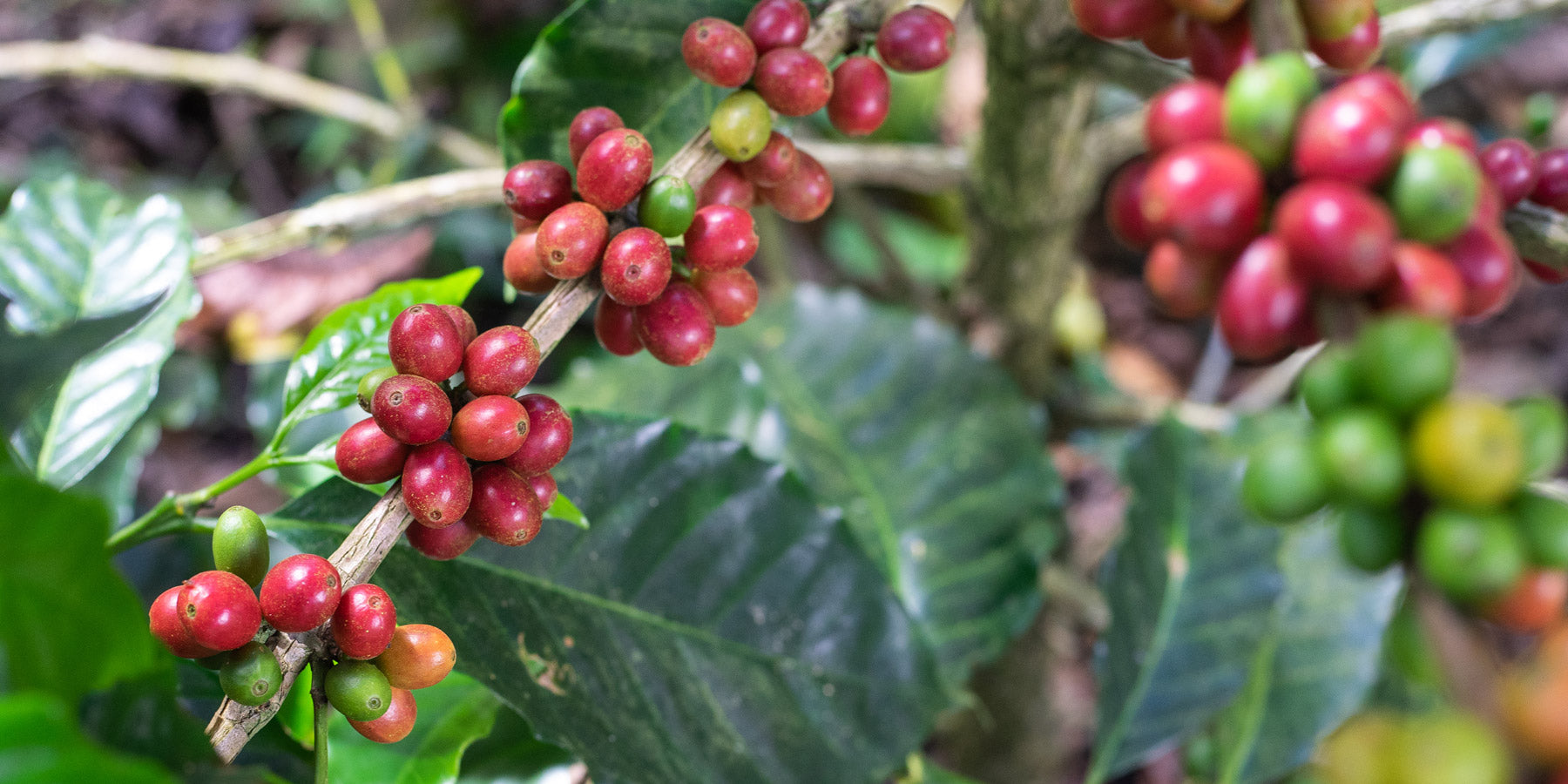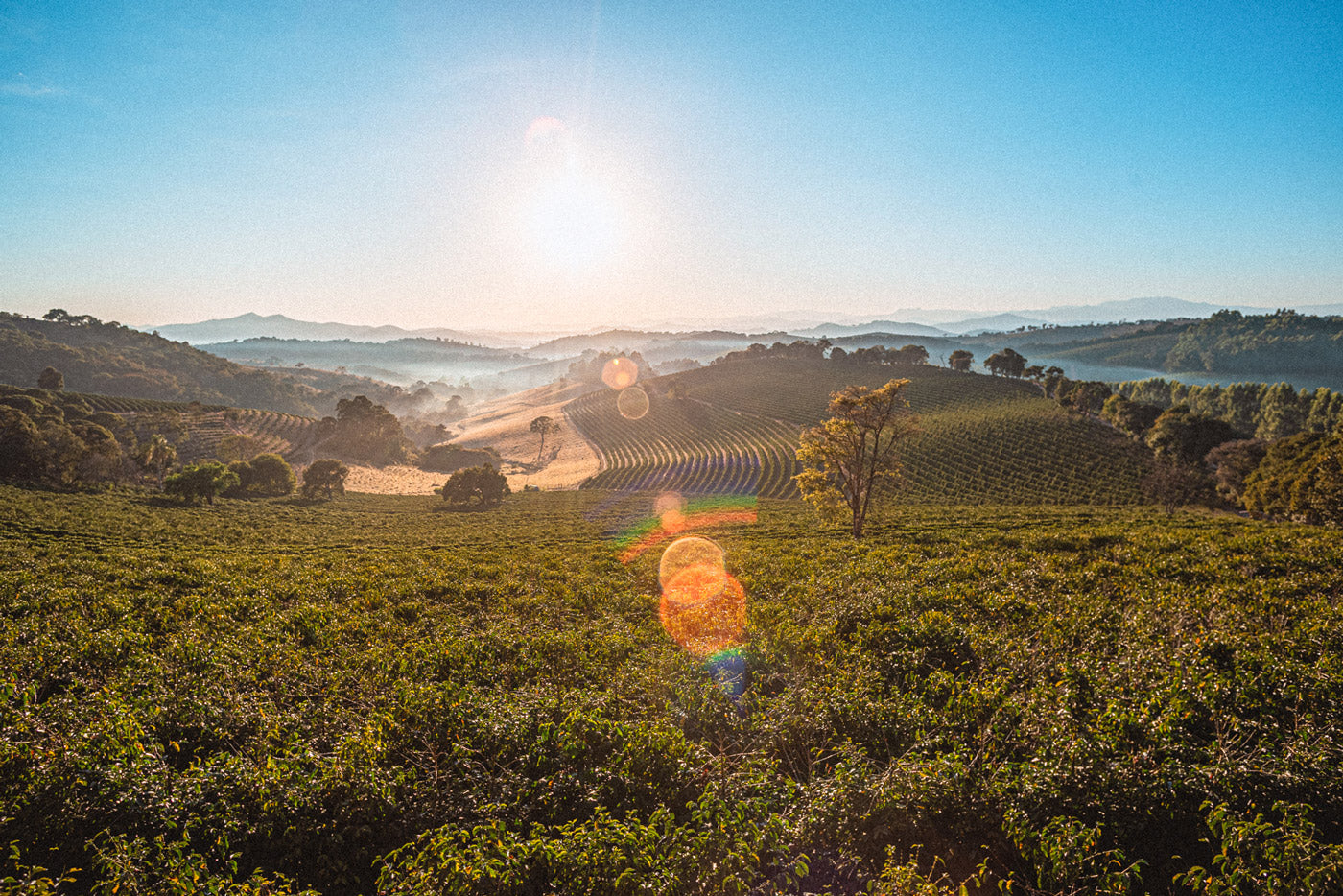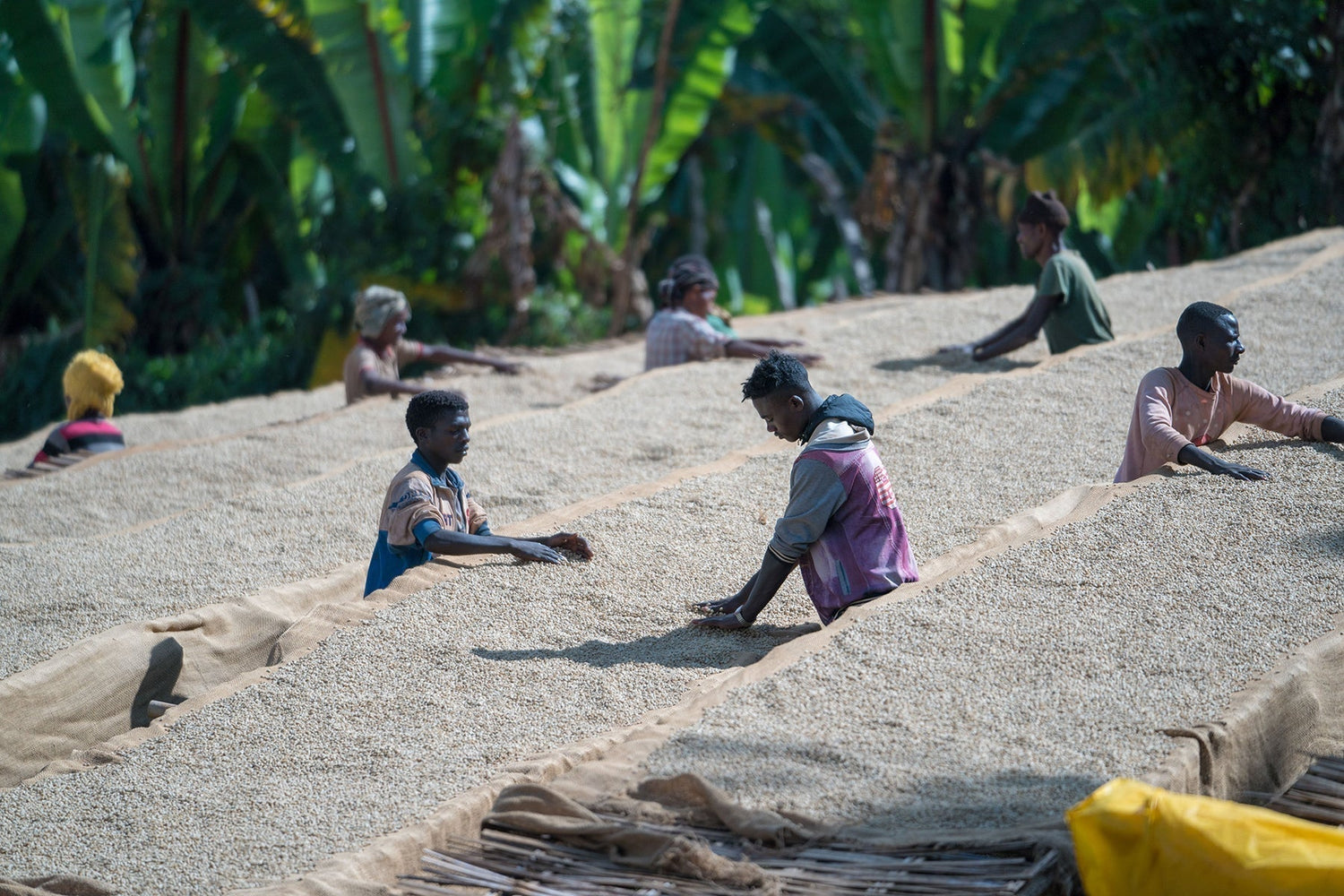Specialty coffee is the best quality of coffee available on the large, global coffee market. It is the crème de la crème of the coffee offering. And such good quality – which you can taste – does not just happen on its own.
Specialty coffee is the result of years of careful farming . Depending on the coffee variety, soil quality and weather conditions , the type of cultivation must be decided individually. The coffee farmer then looks after his valuable coffee trees with a lot of energy and dedication. It is only after a few years that the first harvest can be brought in and offered for sale. For us, this means looking very carefully when purchasing green coffee and choosing carefully. Specialty coffee may be the highest quality level. But despite the higher prices paid for it, not all specialty coffee is the same. In order to really get the best quality, we have built up close relationships with our coffee farmers over the years. They all share our philosophy of healthy, sustainable use of nature. Regular trips to the growing countries are an important factor not only to convince us of the quality, but also to maintain personal, appreciative contact with the farmers. To delve even deeper, take a look at this blog post.

Specialty Coffee - Quality through and through
To ensure quality, we taste each individual specialty coffee (new coffees and new harvests of already known coffee) before purchasing the green coffee. We also receive so-called samples - small coffee rations of a few hundred grams - which we test-roast in the small Roest test roaster in batches of one hundred grams.
The subsequent tasting, often referred to as cupping , is an important tool for assessing the product quality of the specialty coffee.
Cupping always involves tasting under exactly the same conditions, so that the quality of the coffee is the only variable that can be evaluated. The specialty coffees are evaluated using a point system, taking into account certain parameters such as aroma, taste, body, balance, clarity of the coffee, finish, acidity, sweetness and any defects in the beans.
If the total number of points is over 80 , it is called specialty coffee. Theoretically, the rating points can be up to 100 , although the air becomes very thin above 90 .
The number of points is of course also decisive for the price . However, this type of quality control is not only important when selecting green coffees, but also accompanies our daily work in the roastery with our already stored specialty coffees. They are tasted daily to check and ensure the high quality.
After we have tasted and ordered the specialty coffee, it is stored in the country of origin until it is shipped. During storage and on arrival by shipping container, the coffee can change and errors or defects can also occur. To ensure the quality here too, we receive green coffee samples before and after shipping , which we roast and taste with the test roaster. When the delivery arrives at our roastery by truck, the coffees are checked again . At this point , measurements of the moisture and density are also necessary in order to detect any damage to the green coffee as quickly as possible.
Small samples are roasted again on the test roaster. This allows us to determine how the specialty coffee behaves during the roasting process and draw conclusions for roasting on the large roaster. The basic aim of every roast is to bring out the characteristic properties of each coffee . Be it special nut or chocolate notes, special fruit notes, tangy acidity or subtle sweetness.
How is specialty coffee roasted?
Once we have a feel for what notes we can get out of the specialty coffee, we start roasting it on our 35 kilo Loring roaster . The entire roasting process is done by hand. In order to work consistently, we monitor the roasts using the roasting software Cropster , which is used by many specialty coffee roasters. The roasted specialty coffee is sorted by hand and goes through a so-called destoner, which filters out all "bycatch" such as stones .

An important aspect is the right packaging!
Before they go on sale, the beans are weighed and packed in aluminum-free, resealable coffee bags with an aroma valve . The aroma valve allows the gases produced during roasting to escape. At the same time, it prevents oxygen - the enemy of specialty coffee - from entering.
Because our close relationships with the coffee farmers are important to us and we value their work, we attach an information card to each type of coffee with background information about the specialty coffee and the coffee farmer . In the end, there are rarely more than two days between roasting and packaging.

How is specialty coffee brewed?
When brewing specialty coffee, there are a number of components to consider:
One of them is the water quality , especially the pH value of the water. If it is too alkaline, this can lead to a bitter cup. If the water is too acidic, the cup may lack body and clarity. A simple solution is a filter cartridge, for example from Brita. If you want to know more, take a look at our article on the subject.
Other important aspects when making coffee are the degree of grinding, dosage, water temperature and of course the brewing method itself. Stylish portafilter machine or stovetop pot? V60 filter or filter machine? You can choose between dozens of different brewing methods and they all have their advantages and disadvantages. To make a decision, you should know what you like and how much time you want to put into “making coffee”.
Should it be quick and easy or do you want to get every single flavor component out of the specialty coffee? Choose the specialty coffee accordingly and don't be afraid to ask, because there is no right or wrong. The only thing that matters is what works well and tastes good.
A synonym for specialty coffee is third wave coffee. Under both terms, you can expect the highest quality of coffee. Transparency also plays a major role. The specialty coffee can be traced back from the consumer to the coffee farmer and every step in between is carried out with high quality standards.


